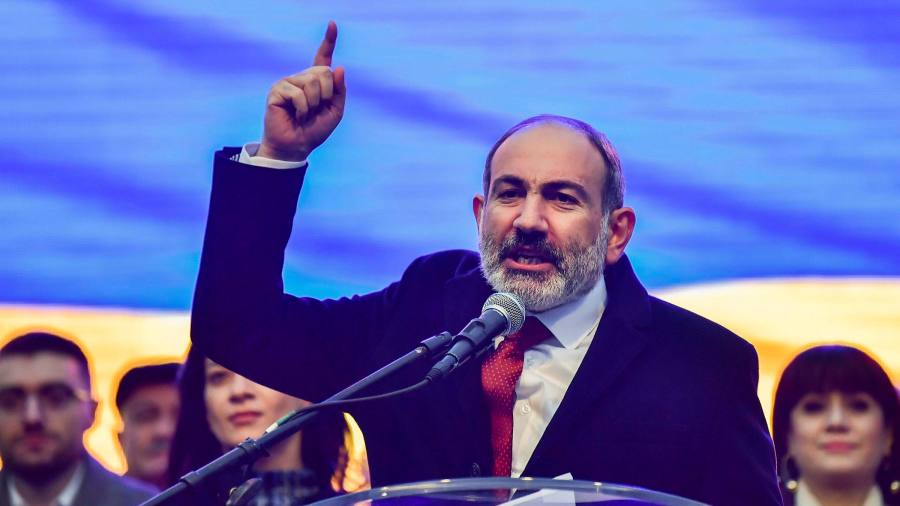[ad_1]
Armenia’s embattled prime minister plans to hold snap elections in June in an attempt to end the political crisis that has gripped the country since it lost a war with Azerbaijan late last year.
Nikol Pashinyan has faced months of protests calling for him to resign and has been locked in a stand-off with the army after he signed a Moscow-brokered peace treaty in November that made significant concessions over the disputed enclave of Nagorno-Karabakh.
He said on Thursday he had agreed to hold new elections on June 20 after discussions with Armenia’s president and the leaders of its two largest opposition parties.
“The best way out of the current internal political situation is the early parliamentary elections,†Pashinyan wrote on Facebook after meeting Gagik Tsarukyan, one of the opposition leaders.
Tsarukyan said he agreed that Armenia needed “to form a new government and cabinet to get the country out of the dire situation it finds itself in.â€

Pashinyan has remained in office despite pressure from Armenia’s army, ceremonial president, three parliamentary opposition parties and church leaders to step down over the defeat in Nagorno-Karabakh.
Last month he claimed that the army was launching a “coup†against him after 40 senior officers, including the chief of the general staff, signed an open letter calling for him to resign.
Pashinyan responded by firing the chief of staff but Armenia’s president, Armen Sarkissian, refused to back the decision, leaving the general in his post.
A former journalist, Pashinyan was swept to power in 2018 during a “velvet revolution†of huge street protests and has sought to harness some of that energy during the political crisis.
After decrying the “coup†last month, he led supporters on a march across the capital Yerevan, chanting slogans through a megaphone. His coalition controls 83 seats in the 132-member parliament.
The defeat in Nagorno-Karabakh was deeply painful for Armenia, which took control of the mountainous enclave in the North Caucasus after a war that erupted during the collapse of the Soviet Union in the early 1990s.
After the ceasefire was announced, hundreds of protesters stormed Armenia’s parliament building and attacked its speaker. Opposition supporters have since held frequent demonstrations calling for the prime minister to quit.
More than 3,300 Armenian soldiers died in last year’s conflict, with a further 9,000 wounded. The settlement gave Azerbaijan control of key territories for the first time since the war in the 1990s.
[ad_2]
Source link






